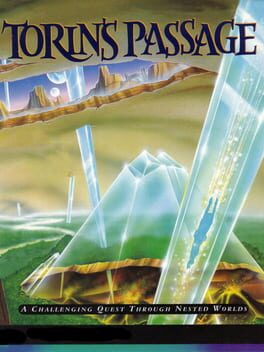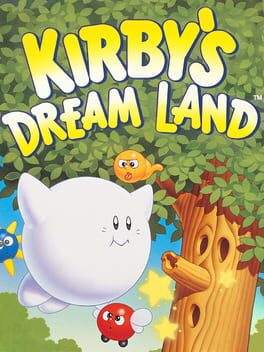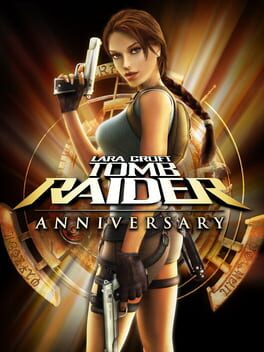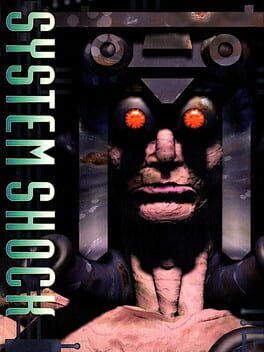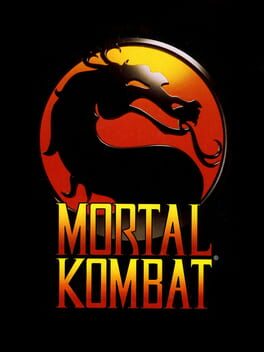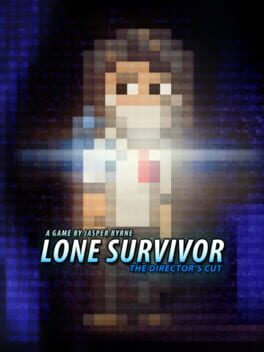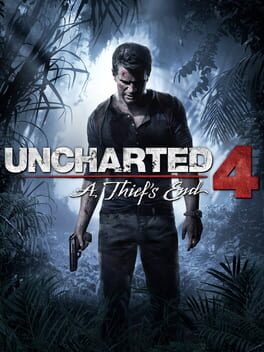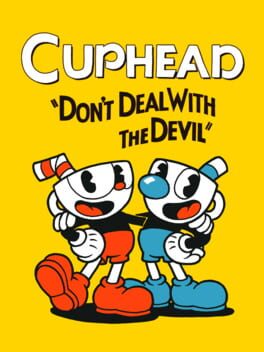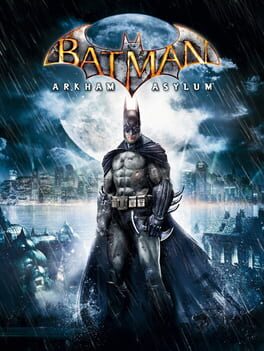10 reviews liked by Amine
Torin's Passage
1995
Kirby's Dream Land
1992
So this was the first game I played on my freshly modded DSi XL, and I think I started on the right foot. And see, I've played Super Star Ultra before, and I was aware that Spring Breeze is basically just this game but in HD with modern mechanics. However, I guess I assumed that they were going to be map-for-map the same. Now I'm just wondering why the developers for KSS/KSSU trimmed the maps down so much, because that combined with the modern movement/ability mechanics makes Spring Breeze ridiculously easy.
Anyway, I had an interesting time with this one. I knew the game was going to be more difficult than other Kirby games due to its controls/hardware. It was interesting, though, because I was able to make it all the way through the first stage without taking any damage, and then got my shit rocked by Kabula and Kracko in the later stages. Kirby moves REALLY slow here, and you can't run, so I think that added to my troubles.
And because it was an old game, I was convinced that the game was going to be really brutal with dying in the same way that other old games are, where if you get a game over, you get booted to the title screen and you have to play from the beginning. So once I noticed I was running low on lives, I started making save states often, because although I was having fun, I didn't have the time (or really the desire) to play again from the beginning if I died.
Now picture this: it's the last stage, and in lieu of long platforming challenges, you get these mini rooms that each end with one of the previous bosses. And you get no health during or in between. I had 0 lives left and a full bar of health. As I make my way through the chambers, my health slowly whittles down to one, as I continue making save states, to make sure I don't lose more health than I need to. Against all odds, I beat Kabula with only 1HP. And then I realize I have to do a damageless run with Dedede. And of course, I die during my first try. I go to load my save state aaand... I save over my save state. Just as I received the final blow. I was devastated, knowing I was so close, but now had to start from the very beginning. I knew I wasn't going to do that, however, at least not today. And being met with the game over screen, I decided to hit 'continue' just to see what would happen. And poof! I'm back in the chamber, pre-Dedede, with all the bosses beat. Four lives, full health. This WHOLE time. I could've played normally had I just let myself get a game over. But, I guess that's on me, right? It was more exhilarating to try and do damageless runs though.
And seriously, why did they make Spring Breeze so stupidly easy?
Anyway, I had an interesting time with this one. I knew the game was going to be more difficult than other Kirby games due to its controls/hardware. It was interesting, though, because I was able to make it all the way through the first stage without taking any damage, and then got my shit rocked by Kabula and Kracko in the later stages. Kirby moves REALLY slow here, and you can't run, so I think that added to my troubles.
And because it was an old game, I was convinced that the game was going to be really brutal with dying in the same way that other old games are, where if you get a game over, you get booted to the title screen and you have to play from the beginning. So once I noticed I was running low on lives, I started making save states often, because although I was having fun, I didn't have the time (or really the desire) to play again from the beginning if I died.
Now picture this: it's the last stage, and in lieu of long platforming challenges, you get these mini rooms that each end with one of the previous bosses. And you get no health during or in between. I had 0 lives left and a full bar of health. As I make my way through the chambers, my health slowly whittles down to one, as I continue making save states, to make sure I don't lose more health than I need to. Against all odds, I beat Kabula with only 1HP. And then I realize I have to do a damageless run with Dedede. And of course, I die during my first try. I go to load my save state aaand... I save over my save state. Just as I received the final blow. I was devastated, knowing I was so close, but now had to start from the very beginning. I knew I wasn't going to do that, however, at least not today. And being met with the game over screen, I decided to hit 'continue' just to see what would happen. And poof! I'm back in the chamber, pre-Dedede, with all the bosses beat. Four lives, full health. This WHOLE time. I could've played normally had I just let myself get a game over. But, I guess that's on me, right? It was more exhilarating to try and do damageless runs though.
And seriously, why did they make Spring Breeze so stupidly easy?
I originally gave this a 2 as I felt it was a very cynical remake, and while I think there is some cynicism baked into it, I don't think it's completely without merit or compassion towards to the original. It has a lot of fun playing around with the original's rock-solid level design and puzzles, making it genuinely very engaging for longtime fans of Tomb Raider.
It also goes without saying that, being based off of Core's original game, this is the best Tomb Raider game that Crystal Dynamics ever made, which is ABSOLUTELY the back-handed compliment it sounds like. Without their really rotten design impulses, there is nothing dragging down Anniversary quite like what happens in Legend and Underworld.
Unfortunately, this is still the Gex team, so they show their asses in different ways throughout this experience. The main one to me, being the terrible, terrible combat. Just inept attempts at action, floaty and without heft, a dysfunctional camera not cooperating well when the game spawns in gorillas to gank you in a cramped corridor. Changing the boss fights to include horrible fucking ungodly QTE sequences should be enough to drop this game to a 1 it's so putrid. The T-rex in the Lost Valley is exciting because of how little fanfare there is: the screen shakes and suddenly a giant fucking dinosaur is barrelling towards you. The player has to make a snap judgement on how to react. Turning that into a QTE and a "Get the boss to ram into the wall" fight is something that only the developers of Gex would think is a good idea.
Platforming games are often sewn at the hip to some disastrous combat mechanics, and Anniversary's almost manage to usurp The Sands of Time's Throne of Shit in regards to them. Which is amusing considering how much of this game (and Legend) really owes itself to Sands of Time.
Sands of Time is very silky smooth though. It's like playing a game from the future compared to this.
Sands of Time came out in 2003 btw.
The R1 button being an all-around context button, the more linear layout of platforming challenges, and the camera being very good at snapping to cinematic angles that give you a readable look at the environment are the secret sauce that makes the Sands of Time hum. When you slow it down and start adding complications to the proceedings, it becomes very janky and sloppy feeling. This is doubly so when the development team is the same one who made Gex.
Lara in TR96 controls the same all the time: she is the model of consistency in a video game. There is an unprecedented freedom in that game of mastering her control scheme because once you do, the game is yours to roam free! Anniversary by contrast feels much more rigid in what you can do, as trying to do platforming challenges out of order will have Lara just flatly refuse to grab a ledge or clip through poles, and the Gex team are VERY bad at signposting so you will be doing this without even understanding why you died. In brief instances where things run smoothly, there is a real glimpse at platforming goodness here. The game just refuses to get going or focus on its strengths, instead in a tug-of-war with this insecurity about what Tomb Raider is and dogged desire to make something new.
While it can be very fun and loving in its tributes to Tomb Raider, it mostly feels clumsy and insecure. It's the game equivalent of "I love this game but it's soooo bad" reviews, just totally lacking in the sincerity that makes the original game actually amazing.
It also goes without saying that, being based off of Core's original game, this is the best Tomb Raider game that Crystal Dynamics ever made, which is ABSOLUTELY the back-handed compliment it sounds like. Without their really rotten design impulses, there is nothing dragging down Anniversary quite like what happens in Legend and Underworld.
Unfortunately, this is still the Gex team, so they show their asses in different ways throughout this experience. The main one to me, being the terrible, terrible combat. Just inept attempts at action, floaty and without heft, a dysfunctional camera not cooperating well when the game spawns in gorillas to gank you in a cramped corridor. Changing the boss fights to include horrible fucking ungodly QTE sequences should be enough to drop this game to a 1 it's so putrid. The T-rex in the Lost Valley is exciting because of how little fanfare there is: the screen shakes and suddenly a giant fucking dinosaur is barrelling towards you. The player has to make a snap judgement on how to react. Turning that into a QTE and a "Get the boss to ram into the wall" fight is something that only the developers of Gex would think is a good idea.
Platforming games are often sewn at the hip to some disastrous combat mechanics, and Anniversary's almost manage to usurp The Sands of Time's Throne of Shit in regards to them. Which is amusing considering how much of this game (and Legend) really owes itself to Sands of Time.
Sands of Time is very silky smooth though. It's like playing a game from the future compared to this.
Sands of Time came out in 2003 btw.
The R1 button being an all-around context button, the more linear layout of platforming challenges, and the camera being very good at snapping to cinematic angles that give you a readable look at the environment are the secret sauce that makes the Sands of Time hum. When you slow it down and start adding complications to the proceedings, it becomes very janky and sloppy feeling. This is doubly so when the development team is the same one who made Gex.
Lara in TR96 controls the same all the time: she is the model of consistency in a video game. There is an unprecedented freedom in that game of mastering her control scheme because once you do, the game is yours to roam free! Anniversary by contrast feels much more rigid in what you can do, as trying to do platforming challenges out of order will have Lara just flatly refuse to grab a ledge or clip through poles, and the Gex team are VERY bad at signposting so you will be doing this without even understanding why you died. In brief instances where things run smoothly, there is a real glimpse at platforming goodness here. The game just refuses to get going or focus on its strengths, instead in a tug-of-war with this insecurity about what Tomb Raider is and dogged desire to make something new.
While it can be very fun and loving in its tributes to Tomb Raider, it mostly feels clumsy and insecure. It's the game equivalent of "I love this game but it's soooo bad" reviews, just totally lacking in the sincerity that makes the original game actually amazing.
System Shock
1994
Mortal Kombat
1992
Mortal Kombat inflicted more collective brain damage to gamers than any other release. Thirty years later, many people still believe fatalities are cool rather than repetitive novelties.
This game has an embarrassing lack of depth. Fighting game characters should be distinguished by more than appearances and a couple of special moves. The basic techniques (rapid jabs, sweeps, etc.) all look and feel the same from combatant to combatant. There's a reason for the laziness: MK banks on blood to enrapture its audience. (What an absolute joke it was back in the 1990s seeing critics pretend this crap rivaled Street Fighter II.)
The fatalities themselves are not even that interesting in hindsight. That's because MK functions like pornography. Pornographic thrills in media grow more explicit to satisfy people's unending lust. The fatalities of today are much more gruesome and intricate. Even if they repulse someone, they grab more attention. The original finishers have thus become irrelevant to all but the most nostalgic of fans. With MK, you can't get no satisfaction because it's all about temporary highs, as opposed to timeless gameplay.
Resist the urge to pat MK on the back for being the most playable of the old fighters with digitized graphics. Transcending the likes of Pit Fighter and Way of the Warrior is like being able to back your car out of a parking spot with no accident, as opposed to ramming the vehicle into a stationary object. MK is the bare minimum for people who don't care about craft in video games.
This game has an embarrassing lack of depth. Fighting game characters should be distinguished by more than appearances and a couple of special moves. The basic techniques (rapid jabs, sweeps, etc.) all look and feel the same from combatant to combatant. There's a reason for the laziness: MK banks on blood to enrapture its audience. (What an absolute joke it was back in the 1990s seeing critics pretend this crap rivaled Street Fighter II.)
The fatalities themselves are not even that interesting in hindsight. That's because MK functions like pornography. Pornographic thrills in media grow more explicit to satisfy people's unending lust. The fatalities of today are much more gruesome and intricate. Even if they repulse someone, they grab more attention. The original finishers have thus become irrelevant to all but the most nostalgic of fans. With MK, you can't get no satisfaction because it's all about temporary highs, as opposed to timeless gameplay.
Resist the urge to pat MK on the back for being the most playable of the old fighters with digitized graphics. Transcending the likes of Pit Fighter and Way of the Warrior is like being able to back your car out of a parking spot with no accident, as opposed to ramming the vehicle into a stationary object. MK is the bare minimum for people who don't care about craft in video games.
I don't think I've ever seen a series evolve less from entry to entry yet still manage to be put on the kind of pedestal which the UNCHARTED series has landed. Uncharted 4 is barely a game, it's a tech demo for the PS4 by way of a blockbuster film.
Adequate 3rd person cover shooting and puzzles the game solves for you, but now there's a grappling hook that pads out the mostly auto-pilot traversal. Why not a stamina system to add stakes to the constant wall climbing? How about filling the gorgeous-but-mostly-empty environments with more subtle clues that would enable me to deduce the puzzles later on? If you're not being handed notes that say "THE ANSWER IS THIS," a character accompanying you will just say "THE ANSWER IS THIS" out loud as soon as you arrive. The game's so on rails it could be an arcade title if it wasn't also holding up a huge, messy narrative.
Speaking of, the problems with this game's story are a result of a massive tonal pivot from the PS3 era games, along with huge gaps in character development. The biggest gripe I've had with UNCHARTED's lore is that a lot of major character development happens "off-camera." Nate and Elena fall in love, then break up between 1 & 2, then they get married AND separate between 2 & 3. Now we're building an entire story around the emotional core of a relationship we've barely even witnessed. And speaking of non-existent bonds, the retcon that Sam was always in the shadows of Nate's past was very sweaty, and overall I don't know what it adds? Nate's character is pretty well established and defined, so much so that I could see him impulsively going on a risky "final quest" that endangers his marriage WITHOUT lost-brother drama. These characters are likeable, but their stories have never been fleshed out enough to make the emotional payoffs of A THIEF'S END feel convincing.
UNCHARTED 4's attempt to add depth to the gameplay and the lore just never add up to anything compelling. The final boss fight introduces gameplay mechanics you've never engaged with (and never will again), in order to round off the arc of an antagonist who doesn't have the character dimensionality Naughty Dog attempts to render them with. It doesn't click as a satisfying adventure shooter OR a character-driven blockbuster. Like it's lead, it pays the price for trying to live two lives.
Adequate 3rd person cover shooting and puzzles the game solves for you, but now there's a grappling hook that pads out the mostly auto-pilot traversal. Why not a stamina system to add stakes to the constant wall climbing? How about filling the gorgeous-but-mostly-empty environments with more subtle clues that would enable me to deduce the puzzles later on? If you're not being handed notes that say "THE ANSWER IS THIS," a character accompanying you will just say "THE ANSWER IS THIS" out loud as soon as you arrive. The game's so on rails it could be an arcade title if it wasn't also holding up a huge, messy narrative.
Speaking of, the problems with this game's story are a result of a massive tonal pivot from the PS3 era games, along with huge gaps in character development. The biggest gripe I've had with UNCHARTED's lore is that a lot of major character development happens "off-camera." Nate and Elena fall in love, then break up between 1 & 2, then they get married AND separate between 2 & 3. Now we're building an entire story around the emotional core of a relationship we've barely even witnessed. And speaking of non-existent bonds, the retcon that Sam was always in the shadows of Nate's past was very sweaty, and overall I don't know what it adds? Nate's character is pretty well established and defined, so much so that I could see him impulsively going on a risky "final quest" that endangers his marriage WITHOUT lost-brother drama. These characters are likeable, but their stories have never been fleshed out enough to make the emotional payoffs of A THIEF'S END feel convincing.
UNCHARTED 4's attempt to add depth to the gameplay and the lore just never add up to anything compelling. The final boss fight introduces gameplay mechanics you've never engaged with (and never will again), in order to round off the arc of an antagonist who doesn't have the character dimensionality Naughty Dog attempts to render them with. It doesn't click as a satisfying adventure shooter OR a character-driven blockbuster. Like it's lead, it pays the price for trying to live two lives.
Cuphead
2017
Great animation and a lot of boss fights don't make a great game. If you've played the Contras, the Mega Mans, the Metal Slugs, and TurboGrafx-16 shooters, you've seen most of what Cuphead has to offer, including its supposedly high difficulty (as commemorated by the adolescent, predictable outrage over Dean Takahashi's gee-whiz ineptitude: https://venturebeat.com/games/cuphead-hands-on-my-26-minutes-of-shame-with-an-old-time-cartoon-game/).
Despite the absence of a compelling array of power-ups, Cuphead is not that hard. Unlike the truly uncompromising shooters (Contra IV, Mega Man, Super Star Soldier, R-Type, and so on), Cuphead throws pieces of a game at its audience: you don't have to fight through a level to get the opportunity to lock horns with a boss. Instead, you move an avatar on a world map, which provides instant access to the bosses. If you're even halfway familiar with classic shooters, most of these battles will not be intimidating; more than a few will be quite boring due to their plagiarism. And inexperienced gamers can simply "get good" without the inconvenience of having to learn levels or any potential complexities of an upgrade system.
It's more than clear that Studio MDHR has a superficial appreciation for shooters and intended to score a trendy indie hit by overcompensating with admittedly impressive hand-drawn animation. The actual levels in Cuphead are pathetic at best: short, obvious, undramatic, phoned-in, an insulting waste of time. And the horizontally scrolling battles feel like lukewarm ideas that would have been rejected by the makers of groundbreaking fare like Gradius, Life Force, and Lords of Thunder. I could only imagine liking Cuphead if I were ignorant of video game history and the mechanical possibilities of the art form.
Despite the absence of a compelling array of power-ups, Cuphead is not that hard. Unlike the truly uncompromising shooters (Contra IV, Mega Man, Super Star Soldier, R-Type, and so on), Cuphead throws pieces of a game at its audience: you don't have to fight through a level to get the opportunity to lock horns with a boss. Instead, you move an avatar on a world map, which provides instant access to the bosses. If you're even halfway familiar with classic shooters, most of these battles will not be intimidating; more than a few will be quite boring due to their plagiarism. And inexperienced gamers can simply "get good" without the inconvenience of having to learn levels or any potential complexities of an upgrade system.
It's more than clear that Studio MDHR has a superficial appreciation for shooters and intended to score a trendy indie hit by overcompensating with admittedly impressive hand-drawn animation. The actual levels in Cuphead are pathetic at best: short, obvious, undramatic, phoned-in, an insulting waste of time. And the horizontally scrolling battles feel like lukewarm ideas that would have been rejected by the makers of groundbreaking fare like Gradius, Life Force, and Lords of Thunder. I could only imagine liking Cuphead if I were ignorant of video game history and the mechanical possibilities of the art form.
Batman: Arkham Asylum excels at making one feel like a version of the comic book legend. Preying on unsuspecting criminals, dispatching fools with unmatched martial arts, becoming a sort of mini-god through the use of gadgets, pulling yourself into the corners of an environment like an animal. And the way Rocksteady Games turns the contrivances of side missions into a prolonged pursuit of the Riddler -- few moments in big-budget 21st century games match the satisfaction of shattering that magnificent bastard's cockiness -- should go down as an all-time ludonarrative masterstroke. But even though few titles put you in the shoes of a superhero as elegantly as Arkham Asylum, the game comes across as too neat and tidy with the detective vision and automated movement during fights. It's still impressive how Arkham Asylum handles such conveniences (I particularly get a kick out of extending combos with gadgets), but if the idea is to be Batman on an intimate level, shouldn't there be a greater sense of hard work and discovery? The Arkham series runs away from this question. This is Metroid Prime lite to some degree.
Chrono Trigger
1995
Chrono Trigger is extraordinary in many ways. The Millennium Fair ranks as the greatest initial location of any RPG, serving as an organic tutorial, a location where your actions will be judged later on in court (a groundbreaking idea), and a damn fun place to visit in general. The soundtrack by Mitsuda and Uematsu — a masterpiece by itself — stirs every emotion in the book with a grandness that transcends the efforts of so many fully orchestrated tracks we hear today. The turn-based combat is tight and fast-paced, with a combo system that hasn't been topped. And the plot is full of colorful characters and brilliant twists, including the death of the protagonist and the shocking conversion of a devilish villain.
At the same time, people overrate Chrono Trigger when they call it the greatest SNES RPG or, worse, the best RPG ever. Too many little flaws for either claim to be true: the overworld graphics are tiny and dull; certain sound effects, like that hoarse creature roar, are comically overused; some techniques are useless and visually embarrassing (see Ayla's Dino Tail); the endings are as underwhelming as they are plentiful; and that bike mini game is insultingly atrocious with its contrived place switching. Final Fantasy VI, Illusion of Gaia, Super Mario RPG, Earthbound, and Secret of Evermore are more consistent than Trigger, yet Trigger gets most of the glory. We need to rewrite the RPG history book when it comes to this injustice, despite Trigger's obvious greatness.
At the same time, people overrate Chrono Trigger when they call it the greatest SNES RPG or, worse, the best RPG ever. Too many little flaws for either claim to be true: the overworld graphics are tiny and dull; certain sound effects, like that hoarse creature roar, are comically overused; some techniques are useless and visually embarrassing (see Ayla's Dino Tail); the endings are as underwhelming as they are plentiful; and that bike mini game is insultingly atrocious with its contrived place switching. Final Fantasy VI, Illusion of Gaia, Super Mario RPG, Earthbound, and Secret of Evermore are more consistent than Trigger, yet Trigger gets most of the glory. We need to rewrite the RPG history book when it comes to this injustice, despite Trigger's obvious greatness.
